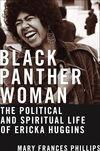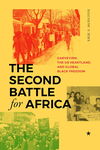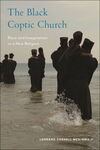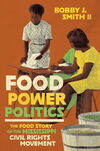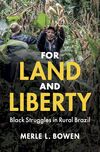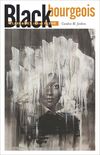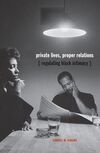The first biography of Ericka Huggins, a queer Black woman who brought spiritual self-care practices to the Black Panther Party.
In this groundbreaking biography, Mary Frances Phillips immerses readers in the life and legacy of Ericka Huggins, a revered Black Panther Party member, as well as a mother, widow, educator, poet, and former political prisoner. In 1969, the police arrested Ericka...
- In The Second Battle for Africa, Erik S. McDuffie establishes the importance of the US Midwest to twentieth-century global Black history, internationalism, and radicalism. McDuffie shows how cities like Chicago, Detroit, and Cleveland, as well as rural areas in the heartland, became central and enduring incubators of Marcus Garvey’s Black nationalist Universal Negro Improvement Association (UNIA...
- In Same Old Song: The Enduring Past in Popular Music, John Paul Meyers argues that these phenomena are part of what he calls “historical consciousness in popular music.” These deep relationships with the past are an important but underexamined aspect of how musicians and listeners engage with this key cultural form.
- McKinnis asks, ‘What does it mean to imagine Blackness?’ Drawing on ten years of archival research and interviews with current members of the church, The Black Coptic Church offers a look at a group that insisted on its own understanding of its divine Blackness. In the process, it provides a more complex look at the diverse world of Black religious life in North America, particularly within non-...
- This book unearths a food story buried deep within the soil of American civil rights history. Drawing on archival research, interviews, and oral histories, Bobby J. Smith II re-examines the Mississippi civil rights movement as a period when activists expanded the meaning of civil rights to address food as integral to sociopolitical and economic conditions.
- For Land and Liberty is a comparative study of the history and contemporary circumstances concerning Brazil's quilombos (African-descent rural communities) and their inhabitants, the quilombolas.
- Dr. Jenkins' book "explores the forces that keep black people vulnerable even amid economically privileged lives. With today’s repeated reminders of the vulnerability of African Americans to state and extralegal violence, Black Bourgeois considers the contradiction of privileged, presumably protected black bodies that remain racially vulnerable. Examining disruptions around race and...
- In Private Lives, Proper Relations, Candice M. Jenkins addresses the question of why contemporary African American literature—particularly that produced by black women—is continually concerned with issues of respectability and propriety.
